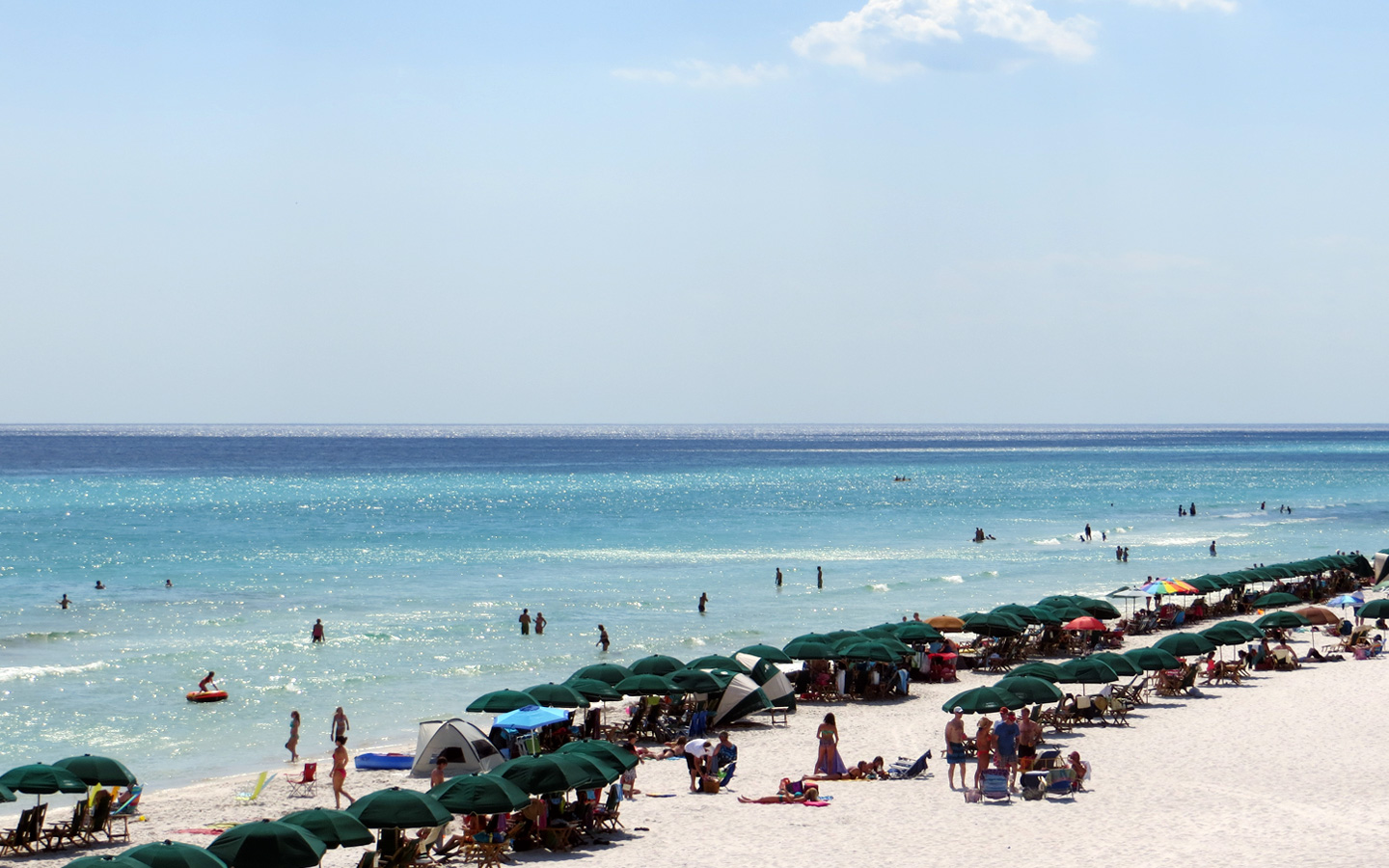Beach Security: How to Protect Your Stuff and Yourself

We’ve all had those “20/20 hindsight” moments, and one of my biggest ones happened when I was 18 and on a family cruise in Bermuda. My cousin and I were so excited for the excursions we’d planned and the chance to roam free like adults. When the ship finally docked, we headed out for an evening picnic on the beach with live music. I remember sitting on a blanket with my cousin, listening to this incredible reggae band, and suddenly realizing that my purse was just…gone. Within a few hours, I was enjoying another very grown-up adventure: spending the night filing reports at the local police station.
With summer officially kicking off this weekend, we wanted to share a few simple tips that will help protect you—and your stuff—while you’re at the beach.
Protect Your Stuff
- Leave all valuables such as jewelry and expensive cameras at home (or if you’re traveling, secure them in your hotel room safe). Only take one credit card, your ID, and the amount of cash you’ll need for the day.
- Try not to leave your belongings unattended or in plain sight on the beach or in your car. (If you have to leave valuables in the car, the trunk is the safest place).
- If you’re going to the beach solo, consider purchasing a waterproof pouch for your phone and cash that you can take swimming with you. Be sure to test it out at home first.
- When you’re going for a walk on the beach or a dip in the ocean and don’t want to bring everything with you, try this: clean out an empty sunscreen bottle, and stow your keys, money, and phone inside. As an alternative, use a sports bottle, but make sure it’s not see-through.
- If you carry a beach bag or a backpack, use one that’s understated and doesn’t look designer or expensive.
- Use common sense and trust your gut—if something doesn’t look or feel right, it probably isn’t.
Protect Yourself
- Always check the tide before you enter the water. Some signs of a rip current include discolored brown water (caused by sand being stirred up), foam on the water’s surface, debris floating out to sea, and a rippled patch when the water around is calm. If you aren’t sure about the tides, ask a lifeguard.
- While inflatable toys are fun in swimming pools, it’s hard to control them (and maintain a safe distance from the shore) in a strong surf or high wind. Better to play it safe than sorry and leave them at home.
- This list wouldn’t be complete without reminding you to use sunscreen and stay hydrated. We recommend you drink lots of water, avoid alcohol, and use a water-resistant sunscreen with broad-spectrum protection and SPF 30 or greater.
Learn From Locals
- If you’re traveling to an unfamiliar or foreign beach, ask about local customs. For instance, in Brazil, locals don’t bring towels to the beach. Instead, everyone uses the Brazilian sarong or “kanga” to lie on the sand. A kanga is made of a lightweight material and also doubles as a cover-up for ladies when walking to and from the beach. To blend in and avoid looking like a tourist, leave the traditional beach towel at home.
- Use your best judgement (and take the advice of locals) before visiting the beach after dark.
- As always, be respectful and observe local customs, including appropriate clothes and public behavior while at the beach. Bikinis may be OK at home, but in some countries wearing them is frowned upon. Research your destination before you hit the sand.
As for my lost purse in Bermuda? The story actually has a happy ending. Two months after I got back, my beaten-up wallet arrived in the mail. In it were my driver’s license and library card with a note that read:
“I found this washed ashore near the port. The cash was gone, but I thought you would need the library card for school reading.”
Do you have tips for staying safe at the beach? Leave a comment and let us know!

You must be logged in to post a comment.